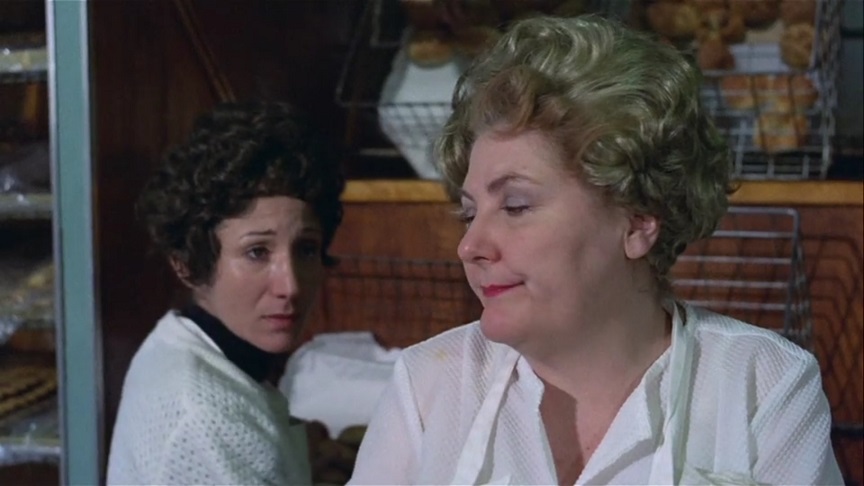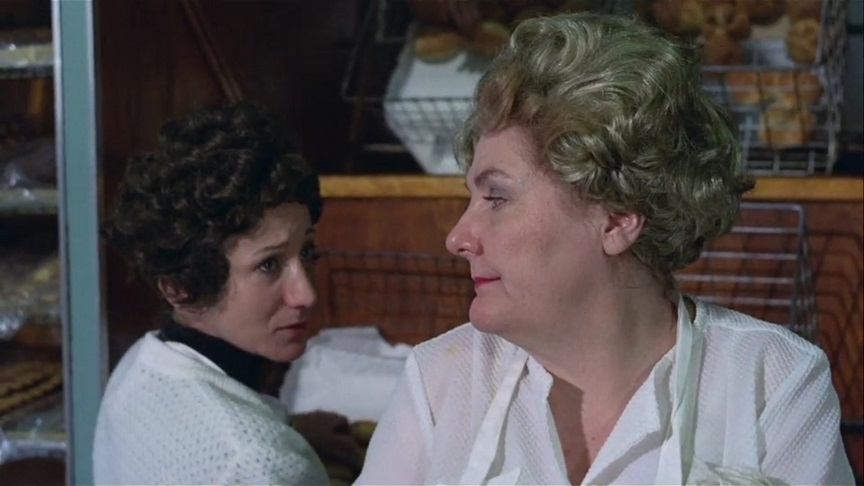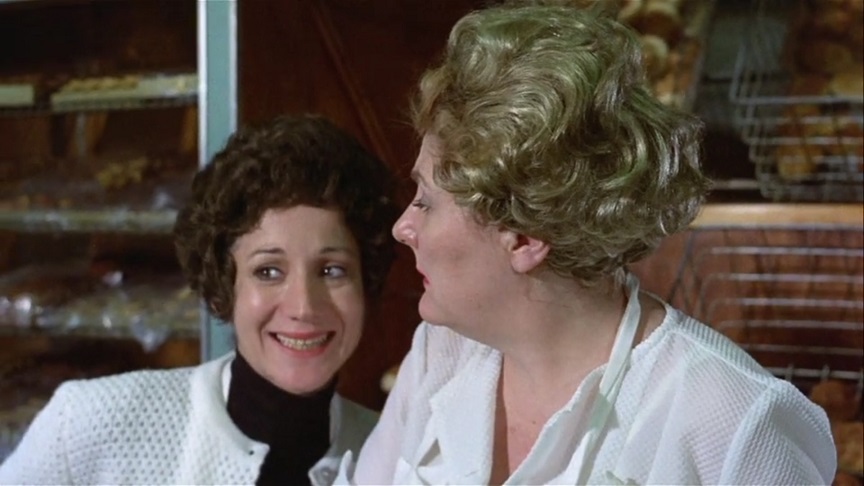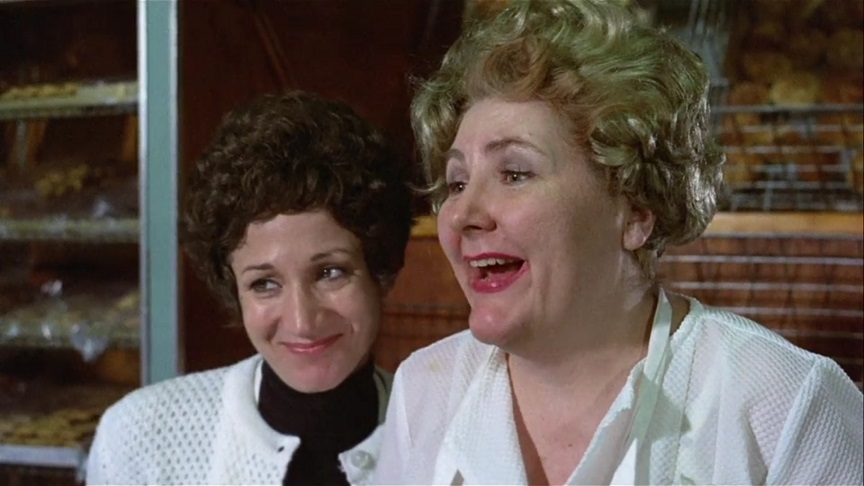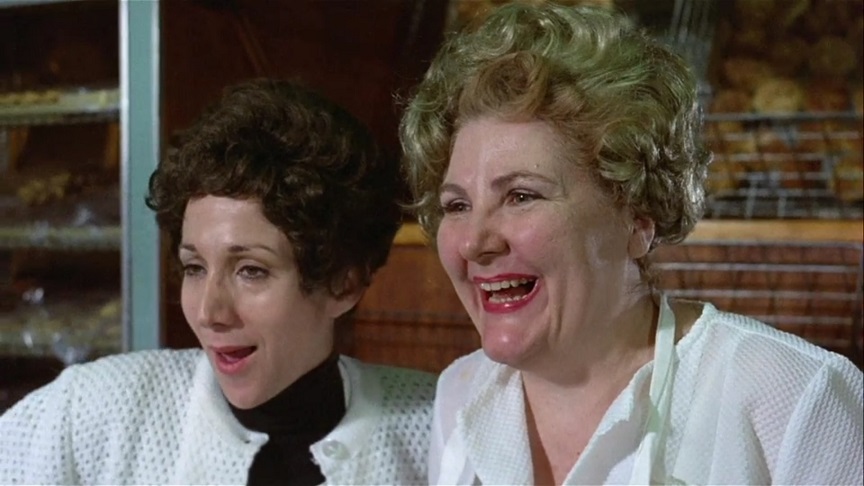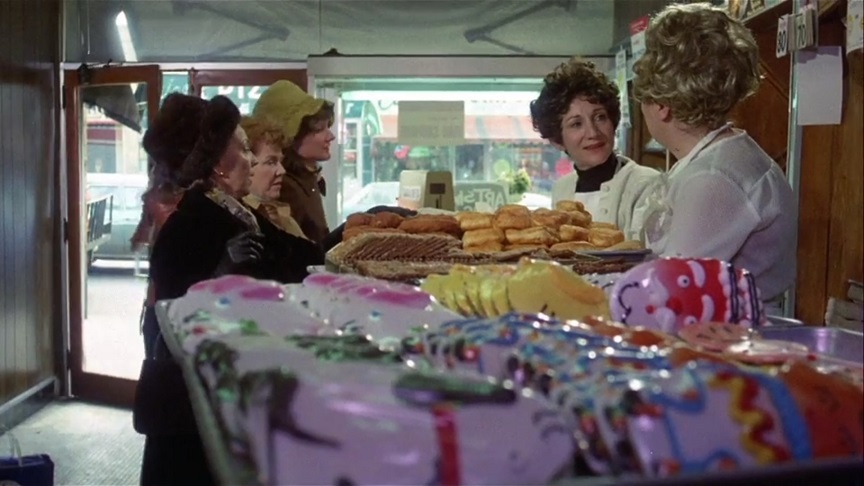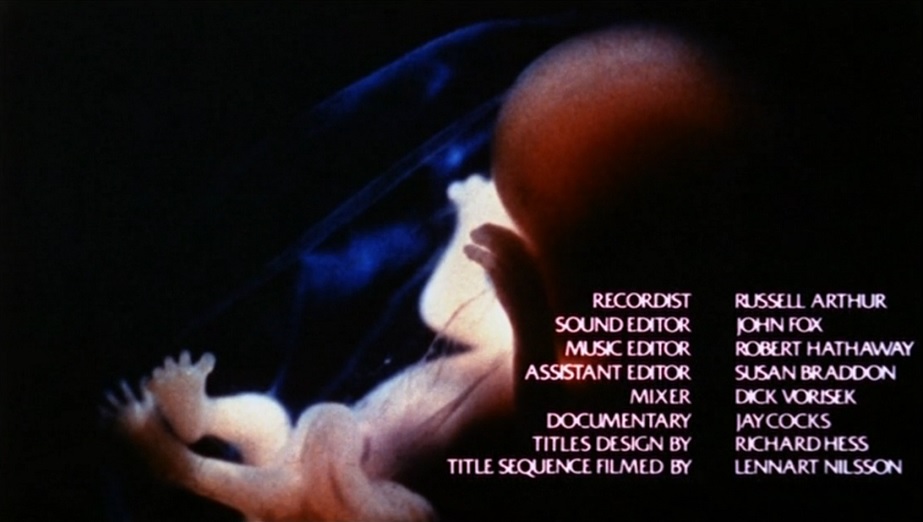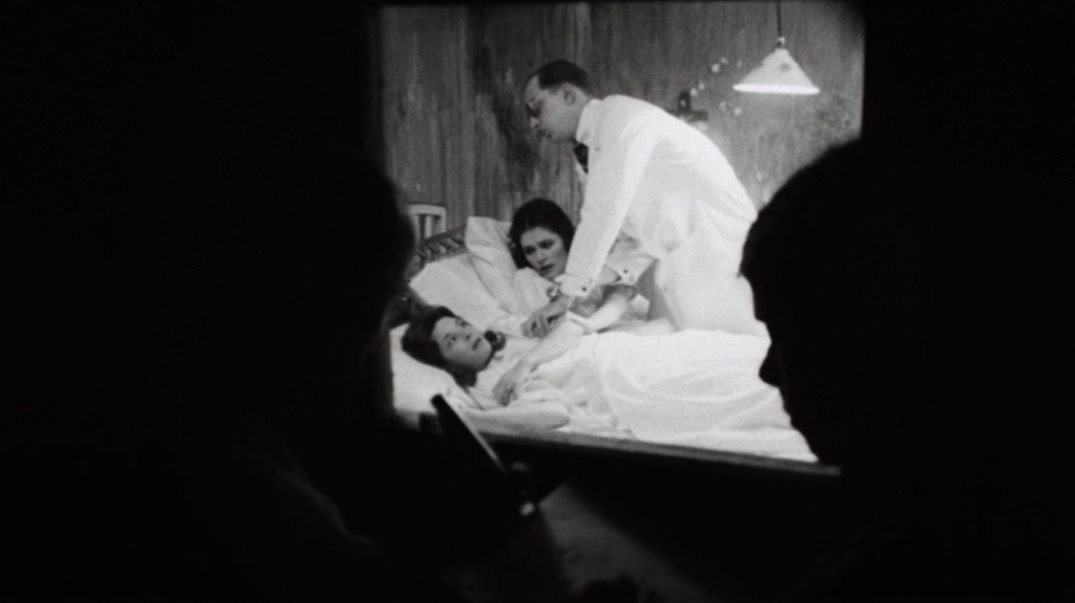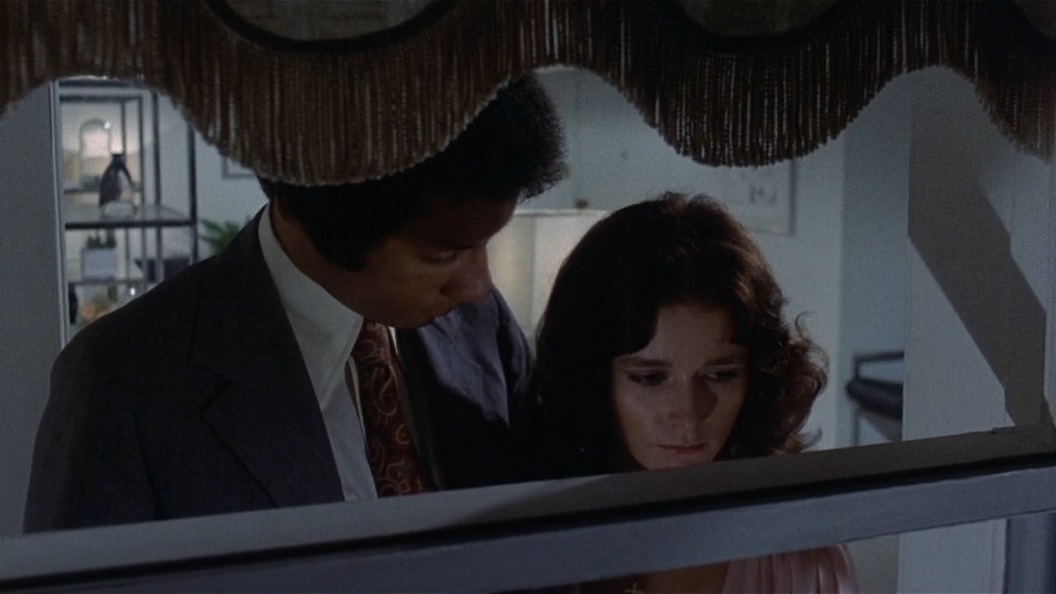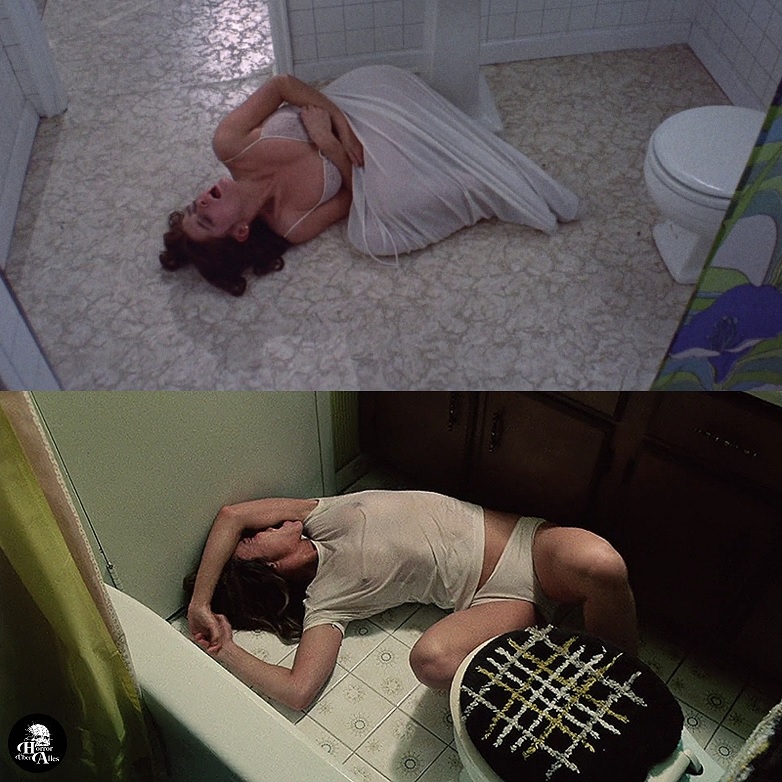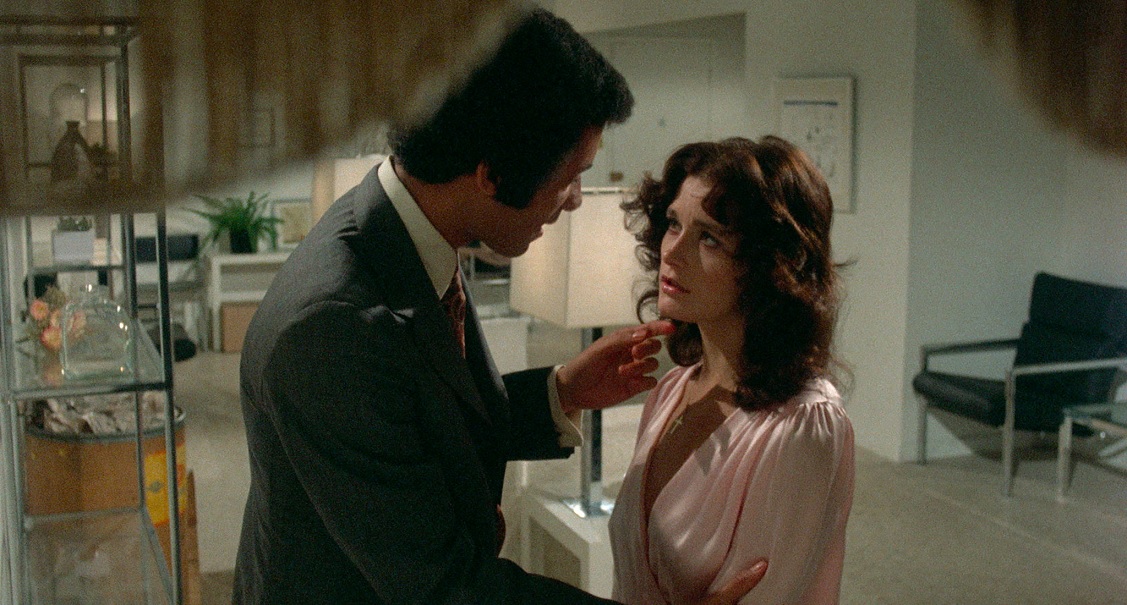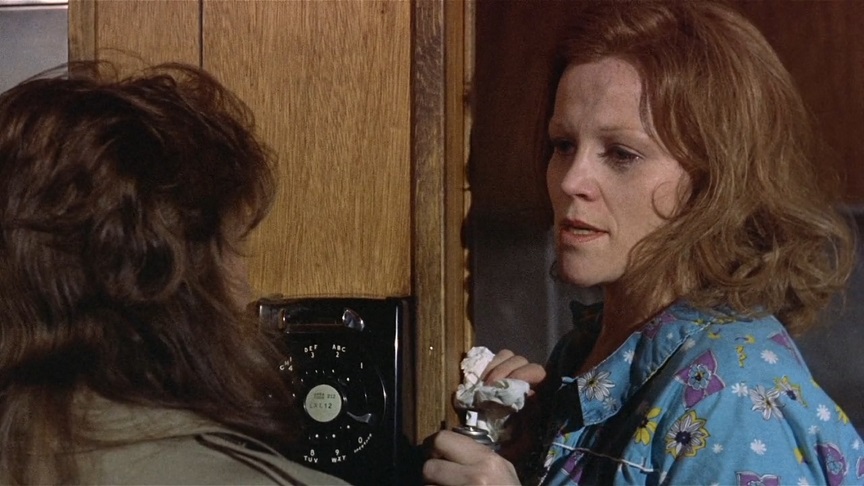OLYMPIA DUKAKIS HAS DIED AT 89
OSCAR WINNER FOR 'MOONSTRUCK' HAD EARLIER UNCREDITED ROLE IN BRIAN DE PALMA'S 'SISTERS'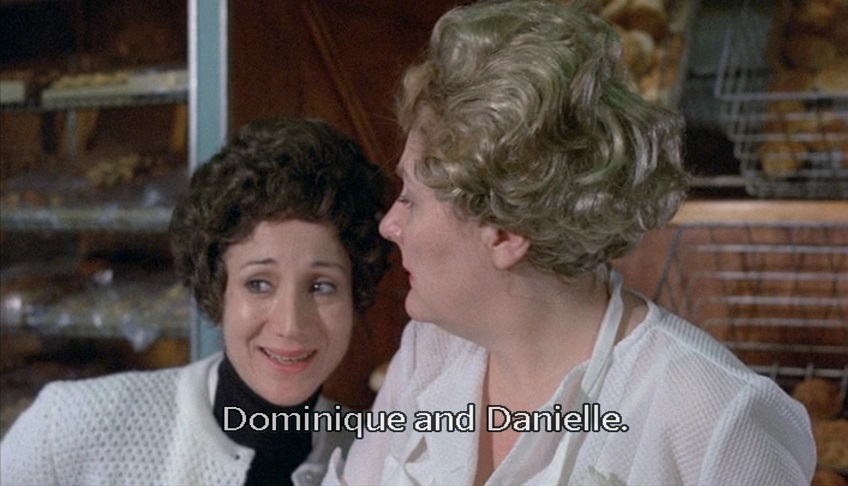 Olympia Dukakis
Olympia Dukakis, who had an uncredited role as the Staten Island bakery worker who remembers the names on the cake in
Brian De Palma's
Sisters (1973), died Saturday at the age of 89. Dukakis is best known for her Oscar-winning performance as the mother of a young widow (played by
Cher) in
Norman Jewison's
Moonstruck (1987). As
Carmel Dagan describes in a Variety obit, Dukakis tackled that role "with an extraordinary comic ethnic gusto characteristic of the movie as a whole."
Sisters was made in 1973, the same year that Dukakis and her husband, Louis Zorich, helped found the Whole Theater Company in Montclair, New Jersey (the first photo below, dated from 1973, shows Dukakis in the front chair with the rest of the company). In Sisters, Phillip is running errands for Danielle when he spots the 4 Corners Bakery, and asks the worker inside to decorate a birthday cake with the names Dominique and Danielle. The lady turns her head back to Dukakis, telling her this guy wants her to write names on a cake. "I'd like to see you try!" Dukakis scoffs back at her, and the co-worker take it as a challenge (and we get a classic eerie suspense queue from Bernard Herrmann). Later, as Grace begins investigating Phillip's murder, she stops at the shop with her mother, and asks the lady about the cake. The lady cannot even remember the names she wrote on the cake(!) but, even during a busy moment, Dukakis pulls herself into the conversation to say the she remembers the names: Dominique and Danielle.
Excerpt from a 2003 New York Times brief by Margo Nash about Dukakis promoting her autobiography:
The trim 72-year-old actress with the throaty voice and direct manner has appeared in more than 40 films, 100 plays and 26 television movies. She has played parts ranging from her Oscar-winning role in 1987 as Cher's mother in ''Moonstruck,'' which made her famous, to the transsexual landlady in television's ''Tales of the City'' and ''More Tales of the City.'' She has also directed, taught acting, helped found five theaters, including the Whole Theater, and won numerous awards. She and her husband, Louis Zorich, were Manhattan theater actors when they moved to Montclair in 1970, seeking a peaceful place to raise a family. They also wanted to start their own theater company, and so with other acting couples, founded the Whole Theater.
The company's first play was ''Our Town,'' in 1973. For the next 17 years, the theater produced five plays a season, including the works of Pirandello, Euripides, Eugene O'Neill, Samuel Beckett, Tennessee Williams, Edward Albee, Lanford Wilson and many others, in productions that were critically praised. Among the actors performing were Jose Ferrer, Colleen Dewhurst, Blythe Danner and Samuel L. Jackson, as well as Ms. Dukakis and Mr. Zorich.
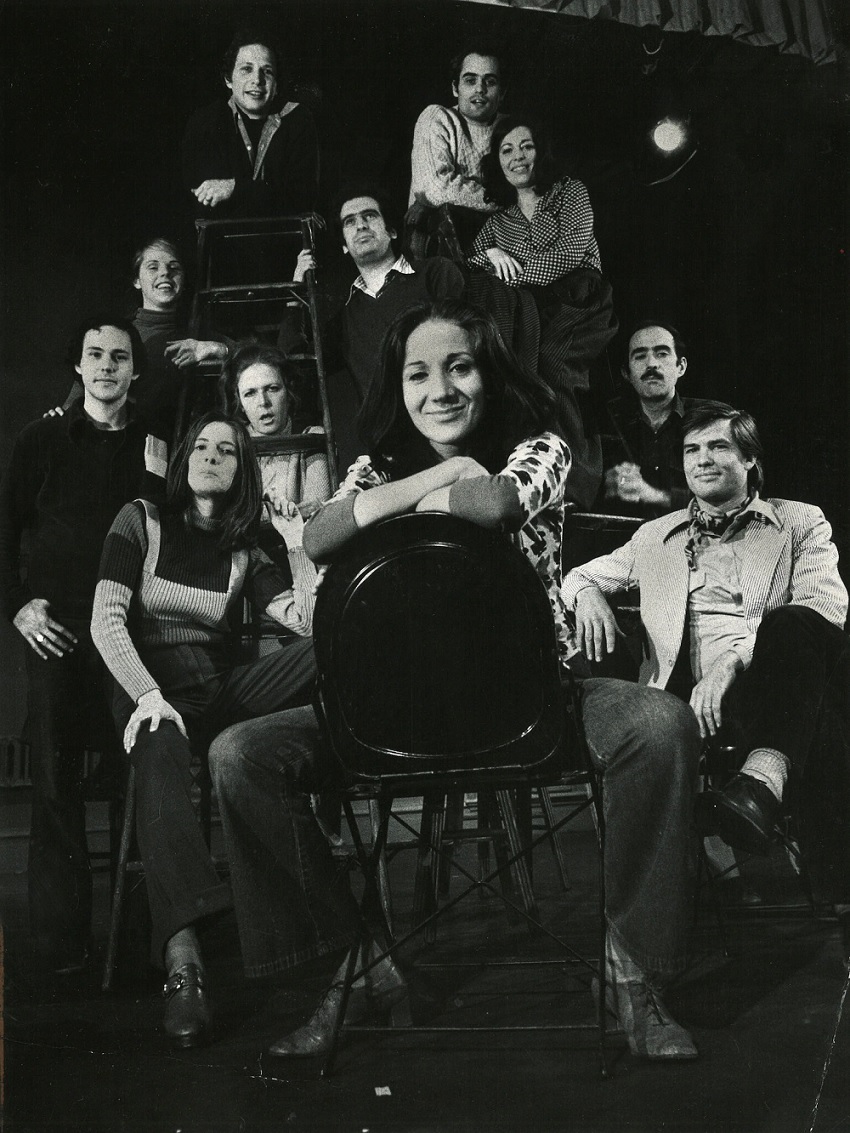
Excerpt from New York Times obit by Anita Gates:
Olympia Dukakis was born on June 20, 1931, in Lowell, Mass., the older of two children of Constantine and Alexandra (Christos) Dukakis, both Greek immigrants. Her father worked in various settings, including a munitions factory, a printing business and the quality control department of Lever Brothers. He also founded an amateur theater company. Olympia graduated from Boston University with a degree in physical therapy and practiced that occupation, traveling to West Virginia, Minnesota and Texas during the worst days of the midcentury polio epidemic. Eventually she earned enough money to return to B.U. to study theater.
Even before she received her M.F.A., she threw herself into her new career, making her stage debut in a 1956 summer stock production of “Outward Bound” in Maine. She moved to New York in 1959 and made her New York stage debut the next year in “The Breaking Wall” at St. Mark’s Playhouse.
Her first screen appearance came in 1962, on the television series “Dr. Kildare.” Her first movie role was an uncredited one as a psychiatric patient in “Lilith” (1964). She received an Obie Award in 1963 for her role as Widow Begbick, the canteen owner, in Bertolt Brecht’s drama “A Man’s a Man” and another, 22 years later, for playing the grandmother of Mr. Durang’s character in “The Marriage of Bette and Boo.”
Along the way she married Louis Zorich, a fellow actor who had appeared with her in a production of “Medea” in Williamstown, Mass. Together they helped found the Whole Theater Company in 1973 in Montclair, N.J., where they lived while bringing up their children. The company produced the likes of Chekhov, Coward and Williams for almost two decades. Ms. Dukakis also taught acting at New York University.
